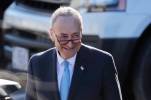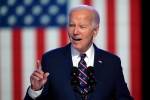Russian sources bought political Facebook ads during 2016 election
LOS ANGELES — Facebook has discovered that it sold about $100,000 in political ads to Russian-linked sources over the past two years, and has shared that information with authorities investigating Russian influence on the 2016 presidential election.
The Washington Post first reported Wednesday that Facebook had informed congressional investigators that the ad sales were linked to a Russian “troll” farm known for spreading propaganda. The entity was called the Internet Research Agency.
Alex Stamos, Facebook’s chief security officer, wrote in a blog post that “in reviewing the ads buys, we have found approximately $100,000 in ad spending from June of 2015 to May of 2017 — associated with roughly 3,000 ads — that was connected to about 470 inauthentic accounts and Pages in violation of our policies. Our analysis suggests these accounts and Pages were affiliated with one another and likely operated out of Russia.”
He said that a majority of the ads did not specify any candidate, but “the ads and accounts appeared to focus on amplifying divisive social and political messages across the ideological spectrum — touching on topics from LGBT matters to race issues to immigration to gun rights.”
“One question that has emerged is whether there’s a connection between the Russian efforts and ads purchased on Facebook,” he wrote. “These are serious claims and we’ve been reviewing a range of activity on our platform to help understand what happened.”
He outlined a series of steps the company has been taking to detect fake accounts and to detect inauthentic pages. That includes “reducing stories from sources that consistently post clickbait headlines that withhold and exaggerate information.”
Special counsel Robert Mueller and congressional committees are examining Russia’s attempts to influence the 2016 election, and whether any Trump campaign officials coordinated with Russian sources.
Facebook co-founder Mark Zuckerberg tried to address the spread of so-called “fake news” on the platform during the election. In a May white paper, the company outlined steps that they’re taking to try to limit the promotion of such false information.
Facebook’s revelation could also trigger calls for greater public disclosure of the sources of political spending. Broadcasters are required to disclose records of their political ad sales.


















